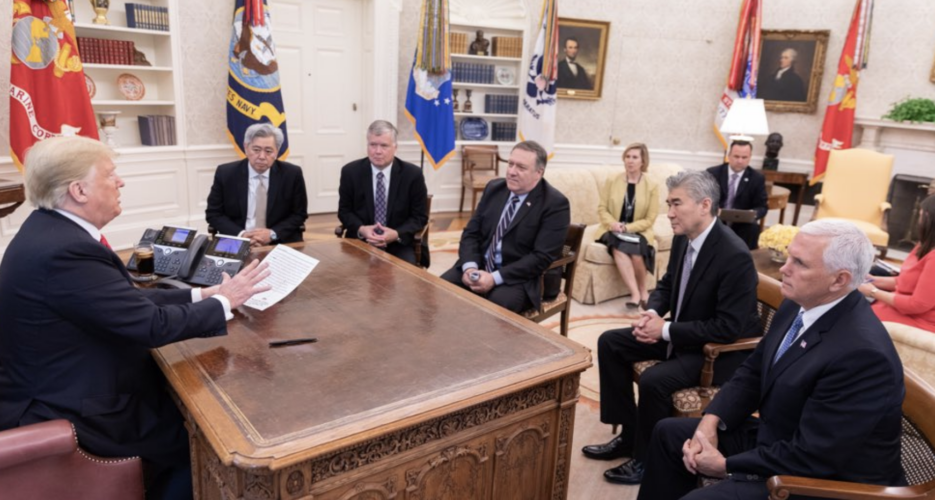Absent calculated risks, U.S.-DPRK diplomacy getting nowhere fast
Trump's cancellation of Pompeo visit to Pyongyang shows a growing obsession with China trade gambit
Dan Scavino Jr, White House
If you are not making adequate progress in a negotiation, it may be rational to walk away from the bargaining table. But that is only the case if your adversary is more anxious to reach an agreement than you are.
North Korea is by no means immune from external pressure; the claim that sanctions have no effect is contradicted by Kim Jong Un’s preoccupation with the economy in recent months.
If you are not making adequate progress in a negotiation, it may be rational to walk away from the bargaining table. But that is only the case if your adversary is more anxious to reach an agreement than you are.
North Korea is by no means immune from external pressure; the claim that sanctions have no effect is contradicted by Kim Jong Un’s preoccupation with the economy in recent months.
Become a member for less
than $5.75 per week.
Unlimited access to all of NK News: reporting, investigations, analysis
The NK News Daily Update, an email newsletter to keep you in the loop
Searchable archive of all content, photo galleries, special columns
Contact NK News reporters with tips or requests for reporting
Get unlimited access to all NK News content, including original reporting, investigations, and analyses by our team of DPRK experts.
Subscribe now
All major cards accepted. No commitments – you can cancel any time.
© Korea Risk Group. All rights reserved.
No part of this content may be reproduced, distributed, or used for
commercial purposes without prior written permission from Korea Risk Group.












